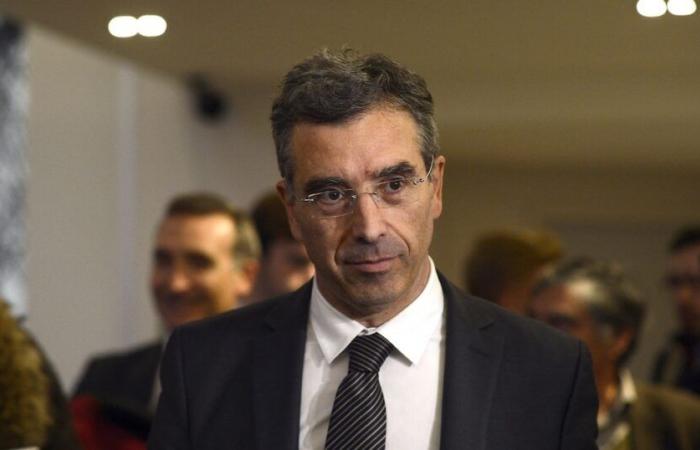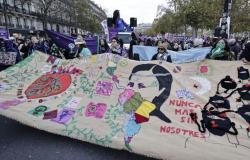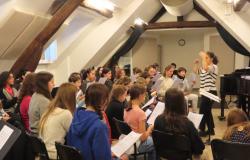Denigration of municipal action, disintegration of resources… While the congress of mayors is being held from November 19 to 21 in Paris, the grievances are numerous. So much so that the event risks being one of “anger” and elected officials who could be “the next yellow vests”, representatives of the Association of Mayors of France (AMF) recently warned.
On the occasion of the congress, L'Express publishes a special report devoted to the 35,000 municipalities of France in which the political scientist Dominique Reynié warns against the appalling “bureaucratization” by which the State restricts and discourages those who remain the most popular among our elected officials. Interview.
READ ALSO: Jérôme Fourquet: “Bureaucratic illness weighs on society the weight of an enormous burden”
L'Express: Is the mayor still the elected official most appreciated by the population?
Dominique Reynié: Overall, yes, and that’s understandable. Even today, the political image that France has of itself passes through the small basic community that is the commune, which we associate with a set of representations: town halls, signposts, memorials to the dead… As the thinkers of Greek Antiquity understood, politics is an activity of weavers and the mayor is precisely the one who weaves the links in a thousand ways and thus holds the city together.
The mayor's other asset is his proximity to citizens. He is known, he is accessible, we see the results of his decisions: he embodies politics with the naked eye, in a way. In front of him, each of us is certainly the governed, but also the interlocutor and the witness of the action of the ruler.
However, the popularity of mayors seems to be declining, as evidenced by the attacks to which they are victims…
Indeed. In recent years, this great figure in French politics has lost part of his capital sympathy. It's a sign. When the mayor is affected, the depth of the evil becomes very serious.
What are the reasons for this relative disaffection?
I see societal reasons and political reasons. On a societal level, we are witnessing in France a growing opposition between two worlds who recognize each other less and less: rural versus urban; the pavilion against the building; regional culture versus globalized culture. More and more often, residents of metropolises no longer understand the world of residents of small towns and their elected officials. This intercultural conflict worsens over the years because, for a long time, urban people have had a peasant grandfather or cousin. Today, this link is almost broken. And we end up with urban dwellers who say they love nature, but seem not to like those who live there.
READ ALSO: Crisis in the agricultural world: the anger of a mayor against “normative madness”
This hiatus is all the more marked as metropolitan culture has a virtual monopoly on intellectual, media and academic representation. This is due to our centralization – all the major media are in Paris – which is available at the regional level – Toulouse or Bordeaux imitate the capital.
And what are the political reasons?
Mayors face a frightening bureaucratization. As soon as they want to do something, they must complete 28 files required by the central system! In fact, we have gradually transformed mayors into para-civil servants, into simple implementers of national regulations. It's a disaster because what makes a mayor good is his knowledge of his territory and the human community that lives there. However, today, he is being prevented from implementing policies adapted to his city and is being forced to apply measures that are not relevant at home. The citizen concludes that there is no point in voting. Under these conditions, we should not be surprised to see abstention rates increase in municipal elections.
But isn't it positive that standards are being enacted, for example to combat global warming?
Who could go against this? The problem is that by multiplying standards, the state machine treats the mayor like a technician. However, he is not a technician: he is the representative of his population and provides a service to the collective! Instead of considering him as such, he is asked to ingest texts about which, most often, he does not understand much, especially since, due to lack of resources, he does not have a team of experts around him. experts who could help him.
READ ALSO: Gaspard Kœnig: “The mayor is the last valve between the individual and the State”
Isn't this the reason why we created intermunicipalities, with the idea of preserving the municipalities, therefore of maintaining proximity, while giving mayors the means they need?
The intention was good, but, ultimately, intercommunality is another way of killing the municipal Republic. In fact, we have brought mayors into a system from which they cannot escape if they do not want to be deprived of funding. With intercommunality, the mayor's ability to make decisions and report to his citizens is even more impaired.
Isn't it nevertheless essential? France has 35,000 municipalities, including 25,000 with fewer than 1,000 inhabitants…
Intercommunality is essential, in fact. I am simply saying that we have gone too far in this direction. Furthermore, we are faced with a democratic problem since this stratum, endowed with significant powers, is not subject to the direct suffrage of voters. And unfortunately this is not the only example that we could cite…
What are you thinking about?
Remember the citizens’ climate conference. During its launch, in 2020, Emmanuel Macron received with great respect the people drawn at random who composed it and declared to them in substance: “What you decide, for the most part, we will apply.” What was the implicit message? “People who were not elected will decide in place of those you elected.” And we were the day after the second round of the municipal elections, marked by a record abstention rate! We should have shouted “Alert!” because the heart of French politics was touched. But no: instead of strengthening the mayors, we were treated to this particularly disturbing scene. Obviously, Emmanuel Macron has not grasped the significance of this moment!
READ ALSO: Rural mayors, nurses, police officers: bureaucratic burnout
Faced with this observation, what should be done?
We need a major movement of decentralization. Jean-Pierre Raffarin tried to do it in the early 2000s, but everything got bogged down. Worse: since then, we have witnessed the opposite phenomenon. The way in which François Hollande redrew the map of the regions was casual and disrespectful. And when Emmanuel Macron removes the housing tax, he deprives elected officials of their autonomy and reinforces centralization.
Concretely, what do you recommend?
It takes a night of August 4th of the regulations. And choose. Either we opt for a pure Jacobin model, we abolish the communes and we settle for mayors appointed by the State, responsible for carrying out its orders. Either we make mayors living political units, responsible to their voters, but for that they need real autonomy.
READ ALSO: Housing tax: let's open a major debate on community financing, by Nicolas Bouzou
Wouldn't granting so many local freedoms amount to breaking with the principle of equality?
We often believe it. In reality, it's the opposite. Treating territories that do not have the same resources in an egalitarian manner means amplifying inequalities. The American philosopher John Rawls put it this way: “There are just inequalities, those that benefit the least advantaged.” This is why applying the same rules in Creuse and Hauts-de-Seine is absurd, even hypocrisy. The State is in deep crisis, but it refuses to grant freedoms to the territories, for fear of losing its absolute supremacy. It's time to change software.
.
- -





